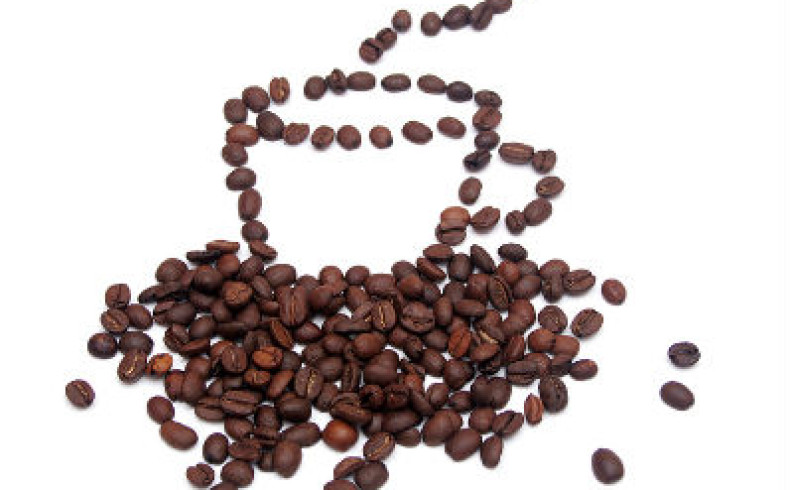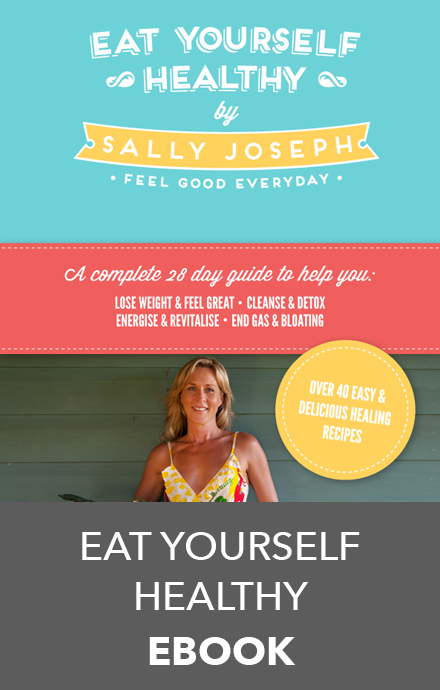
How to beat the bean
Last week, we explored the effect excess coffee consumption is having on our health. Hopefully, you’ve gained new insight, and maybe even view your daily cappuccino differently. If you are ready to beat the bean, here are my tips for freeing yourself from its grips…
Coming off the juice
The key to kick-starting any shift in your health begins with an effective detox program. I cover this in detail in my eBook, Eat Yourself Healthy in 28 Days and if your keen to add extra punch to the effects of my eating program, I suggest you partner it with my detox packs.
How difficult it is to kick your caffeine habit depends on a few factors, including how many cups you consume each day. This determines how heavily your body relies on caffeine as a stimulant for various hormones – namely cortisol and serotonin. Let’s face it, it can be hard – the biochemical response associated with giving up caffeine can be similar to a smoker trying to quit nicotine, or a sugar addict trying to quit sugar. If you are an addict of all three of these vices, then I suggest quitting one at a time, or you may find yourself on going on a rampage, only to be carried away by men in white coats.
If you’ve only been drinking one coffee a day, then I recommend cutting cold turkey. If this sounds too harsh, try to cut back to one or two per week, before applying abstinence. If you’re on two cups a day then reduce to one, then to one coffee two or three times a week, to none over the period of 10 – 14 days.
Where people are drinking more than two coffees a day, I recommend weaning a little more slowly to allow your body to adjust to the withdrawal from caffeine. You will also need to re-stimulate your body’s natural production of serotonin. I recommend supplementing with a quality B complex to assist with natural energy production, vitamin C to balance out healthy cortisol levels, and of course my favourite mineral – magnesium to assist with regulating your electrolyte balance, prevent irritability and aid relaxation. Introducing these basic nutrients will make the quitting process a lot easier.
Coffee is also extremely acidic and causes dehydration, so when weaning its especially important to drink plenty of water (around 2.5 litres per day) to aid in the re-hydration and detox process. This will also fend off those awful withdrawal headaches.
Staying social while giving up the bean
Most of us associate our habit with escaping from the office, catching up with friends and partaking in ‘cafe society’. Quitting doesn’t mean an end to this. It’s all about the SWAP rather than the DROP! There are a gazillion and one delicious teas on the market and plenty of beautiful teahouses who provide an opportunity to sample as many varieties as your bladder can withstand. I suggest you swap being a caffeine addict for the art of a herbal tea connoisseur. Your liver and skin and adrenals will love you for this.
I’m all for hanging in my local cafe for a cuppa, but I have learnt to enjoy the buzz and refreshment from a fresh herbal tea. Even freshly chopped ginger can satisfy. So experiment. Tea drinking goes far beyond Twinning’s Earl Grey and English Breakfast; there’s exotic chai, lemongrass and ginger zinger, green tea, rose and vanilla, licorice… the list goes on. T2 have played a huge role in bringing this healthy habit back to cool with their funky stores popping up across Australia.
You can also turn your kitchen pantry into a hub for brewing your own blends by keeping fresh ingredients on hand like ginger, lemon grass, cinnamon quills, star anise, fresh mint, and vanilla bean. Unlike coffee, all herbal teas have medicinal properties to boot, and are a classic example of using food as medicine! See this week’s recipe for one of my favourite homemade blends.
So if you’re looking for ways to reduce stress in your life, improve your liver function and even reduce cellulite and re-hydrate, then my tip is to kick coffee to the kerb for a while. You might be pleasantly surprised by the long-term improvements to your day to day function.
You can read more on my tips for healthy coffee alternatives here.


Health & Lifestyle Tips
Delicious Healthy Recipes
Educational & Recipe Videos









Thank you Sally, much appreciated!
Thank you Sally, much appreciated!
Hi Casey
The most obvious signs to look for with sluggish liver function are fatigue, yellowy / brown colouring under your eyes, poor complexion, low energy / lethargy, sluggish bowel function, irritability, sleep disturbances – in particular waking around 1- 2am, and yellowy whites of your eyes. Basically when your liver function is sluggish, it will not process toxins as effectively, which will inevitably accumulate within your body over time. Excess caffeine consumption can indirectly contribute to the accumulation of excess abdominal fat through it’s impact on the adrenal glands – namely the stress response hormone cortisol. If you experience excessively high cortisol for prolonged periods of time, which excess caffeine can contribute to, then this will impact on other hormones in the body such as progesterone. Low progesterone and excess oestrogen is typically linked to excess accumulation of abdominal fat. My suggestion would be to follow the eating program in my e- book Eat Yourself healthy In 28 days combined with my recommended liver and bowel detox pack to re boot your liver and digestive function and then see what impact this has shifting some of the fat from your abdominal area. You may then need to follow with some adrenal restorative herbs, but I would consult with your health practitioner for further investigation with specific pathology testing for an assessment of your hormone levels.
Hope this helps
Cheers
Sally
Hi Casey
The most obvious signs to look for with sluggish liver function are fatigue, yellowy / brown colouring under your eyes, poor complexion, low energy / lethargy, sluggish bowel function, irritability, sleep disturbances – in particular waking around 1- 2am, and yellowy whites of your eyes. Basically when your liver function is sluggish, it will not process toxins as effectively, which will inevitably accumulate within your body over time. Excess caffeine consumption can indirectly contribute to the accumulation of excess abdominal fat through it’s impact on the adrenal glands – namely the stress response hormone cortisol. If you experience excessively high cortisol for prolonged periods of time, which excess caffeine can contribute to, then this will impact on other hormones in the body such as progesterone. Low progesterone and excess oestrogen is typically linked to excess accumulation of abdominal fat. My suggestion would be to follow the eating program in my e- book Eat Yourself healthy In 28 days combined with my recommended liver and bowel detox pack to re boot your liver and digestive function and then see what impact this has shifting some of the fat from your abdominal area. You may then need to follow with some adrenal restorative herbs, but I would consult with your health practitioner for further investigation with specific pathology testing for an assessment of your hormone levels.
Hope this helps
Cheers
Sally
Hi Sally, thank you for another insightful post! In relation to caffeine consumption, can you please tell me what the signs of a “sluggish” liver are? Also, can caffeine be a cause of fat accumulation around the lower belly in people who are skinny in most other places?
Many thanks
Hi Sally, thank you for another insightful post! In relation to caffeine consumption, can you please tell me what the signs of a “sluggish” liver are? Also, can caffeine be a cause of fat accumulation around the lower belly in people who are skinny in most other places?
Many thanks